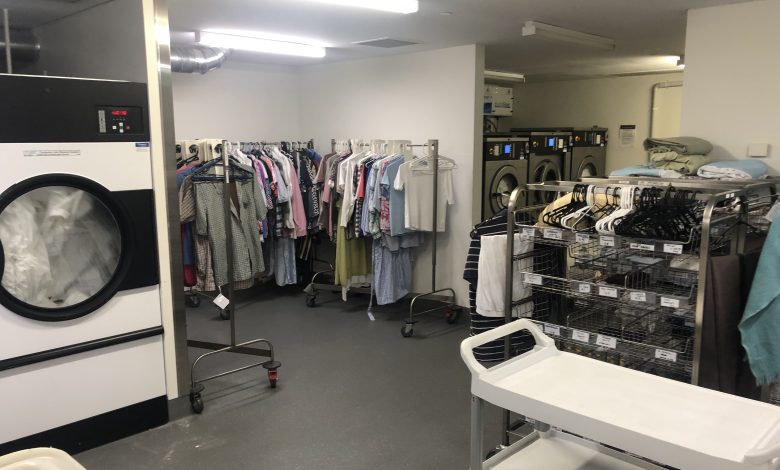
The power of in-house laundry operations
Optimising operational efficiency through in-house laundry operations
Guest surveys consistently reveal that the top priority for guests is a comfortable bed with clean, fresh linen. Providing pristine bedding and linen for your guests is key to ensuring their ultimate satisfaction. That’s why having a reliable laundry operation is essential.
While many properties choose to outsource their laundry operations, there are significant quality and financial advantages to bringing these operations in-house. An in-house laundry can prevent disruptions in linen supply and optimise operational processes, ultimately reducing costs.
Read the summer print edition of AccomNews HERE
However, it’s understandable some believe outsourcing is cheaper due to the expenses associated with appliances, repairs, water, power bills, and the additional staff required to operate an onsite laundry. Nevertheless, many are discovering the long-term financial benefits of going in-house and investing in appliances known for their reliability, longevity and capacity.
Sean West, the National Sales and Marketing Manager of Laundry Solutions Australia, told us: “The advantages of bringing laundry operations in-house include cost reduction, control and flexibility.
“Having your own on-premises laundry allows you to customise linens in terms of colours, textures, and more to enhance guestroom presentation.”
He added that presentation plays a crucial role in marketing efforts for hotel management.
“The cost of going in-house should financially stack up, and it generally does,” he said.
In-house laundry operations also enable the property to take control of both timing and quality when providing fresh linen. Additionally, they allow for innovation in how offerings are presented using subtly different colours and textures.
When well-planned, Mr West said a good on-premises laundry “will pay for itself by streamlining processes and taking advantage of environmental technologies”.
He highlighted that a significant cost component of outsourcing is logistics, which can be largely avoided when running an on-premises laundry. This control over the process enables the establishment and implementation of great efficiencies that result in substantial savings.
Mr West shared some essential requirements for in-house laundry operations:
- Equipment Capacity: Ensuring the right capacity for current and future requirements is vital for efficient processing.
- Workflow: Establishing a smooth workflow between washers and dryers helps eliminate bottlenecks.
- Layout: Providing sufficient space not only for washers and dryers but also for trolleys and staff.
- Processes: Planning and documenting best-practice processes.
Regarding the choice of machinery, detergents and linen handling equipment, he advised partnering with a supplier who can consult on capacity, design, and processes.
He pointed out that it’s crucial to match dryers to washers to create a seamless workflow and have the right equipment for the type of laundry being processed. Effective and practical trolleys that alleviate manual handling are also essential.
Mr West’s tip for the best workflow and layout is to “create a one-way flow, from soiled storage to washing, to drying, to finishing, and distribution”. Adequate space for handling equipment throughout the entire process is also important.
When it comes to strategies and industry best practices, Mr West suggested addressing linen shortages by maintaining optimum par levels. This involves having one set in the room (on the bed), one set in the laundry, and one set on the shelf. Creating a linen replacement schedule can be as simple as having a form on the laundry wall that identifies when staff remove any item from circulation. This ensures timely replacements and investigation into why an item needed to be removed in the first place.
In-house laundries improve operational efficiency by providing control over the process, enabling the investigation and implementation of efficiencies. Partnering with a reputable laundry supplier can offer free laundry consulting, resulting in significant savings in both labour and utilities.
Most importantly, safety should never be overlooked. Mr West emphasised the importance of having good documented processes, including using trolleys and understanding the various chemicals that staff interact with.
Finally, Mr West stressed the significance of training for success in in-house laundry operations, stating, “training, training, and more training” as the key.”
Grantlee Kieza OAM has won three Queensland Media Awards, two Australian Sports Commission Awards and has been a finalist for the Walkley and News Awards and for the Harry Gordon Award for Australian sports journalist of the year. In 2019 he received the Medal of the Order of Australia for his writing. You can find more of his work in our AccomNews & Resort News print magazines.
He has written 22 acclaimed books, including bestsellers Hudson Fysh, The Kelly Hunters, Lawson, Banks, Macquarie, Banjo, Mrs Kelly, Monash, Sons of the Southern Cross and Bert Hinkler.






